News

Colombo Port Gridlock Threatens Sri Lanka’s Export Competitiveness
Sri Lanka’s exporters are once again battling rising costs, missed deadlines, and vanishing client trust as chronic congestion and red tape at the Port of Colombo disrupt trade flows through the nation’s most critical maritime hub. Once hailed as South Asia’s transshipment leader, the port now risks ceding ground to faster, better-managed regional rivals.
For exporters in garments, rubber, and electronics, the delays have been devastating. Vessels are reportedly arriving up to two weeks behind schedule, forcing companies to bear heavy penalty clauses, demurrage fees, and freight surcharges. Some shipping lines have already begun rerouting vessels to Indian ports such as Vizhinjam, Mundra, and Cochin, where quicker turnaround times and streamlined customs procedures offer more reliability.
The heart of Colombo’s crisis lies in terminal congestion and inefficient inter-terminal transfers. Exporters complain that containers must still be moved manually between terminals by prime movers an outdated process ill-suited for a port handling nearly 8 million TEUs annually, including 6.2 million in transshipments. While official figures show a modest 4% increase in throughput during the first half of 2025, insiders warn that those numbers conceal severe operational bottlenecks and mounting costs.
Adding to the strain, bureaucratic hurdles continue to plague the system. Importers of perishables and agricultural products often face clearance delays because authorities refuse to recognize international laboratory certifications, insisting on local retesting by overburdened agencies such as the Sri Lanka Standards Institute. The result: rotting food cargo, soaring demurrage, and frustrated traders.
Industry experts argue that accepting globally accepted certifications and adopting digital pre-clearance systems could drastically cut delays. Productivity gaps between state-run terminals and privately operated facilities such as SAGT and CICT also remain stark. Although the newly built West Container Terminal has the capacity to ease congestion, it remains underutilized due to poor operational integration.
Exporters and analysts warn that expanding capacity alone will not resolve the crisis. Without systemic reforms including harmonized berth allocation, digital customs, transparent scheduling, and infrastructure coordination the port risks transforming from a strategic asset into a costly chokepoint.
“Colombo stands at a crossroads,” said one industry leader. “Either we modernize now, or we watch our trade slip away to faster ports across the region.”

Meteor Shower to Be Seen Tonight
Astronomers say one of the year’s most prominent meteor showers will be visible tonight (20).
This celestial event, known as the Orionids, is expected to put on its best display between 3:00 a.m. and 5:00 a.m., offering ideal viewing conditions during those hours.
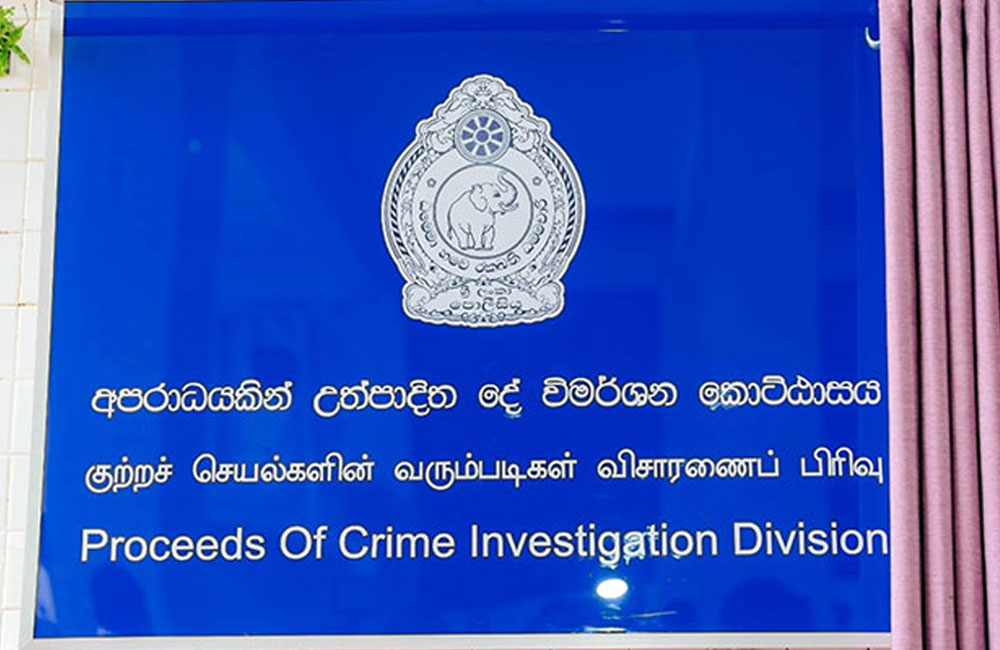
Government Steps Up War on Corruption with Asset Probe
In a decisive move to combat entrenched corruption and criminal profiteering, the Sri Lanka Police has established a powerful new investigative arm the Proceeds of Crime Investigation Division (PCID) to trace, seize, and recover wealth acquired through illegal means.
The PCID, set up under the newly enacted Proceeds of Crime Act, represents one of the most ambitious anti-corruption measures introduced by the new administration. It will operate directly under the Inspector General of Police (IGP) and collaborate with the Commission to Investigate Allegations of Bribery or Corruption (CIABOC) and other enforcement bodies to target both public officials and criminal networks suspected of amassing illicit fortunes.
Officials say the new division will focus on the investigation, restraint, forfeiture, and disposal of assets linked to offences such as bribery, money laundering, drug trafficking, and organized crime. Importantly, the Act allows non-conviction-based forfeiture enabling the state to seize suspicious assets even before a criminal trial concludes, closing a loophole that has long shielded politically connected offenders.
The unit will be headquartered at the Old Police Headquarters in Colombo 01 and formally inaugurated by Public Security and Parliamentary Affairs Minister Ananda Wijepala, alongside IGP Priyantha Weerasuriya.
According to police data, over Rs. 4.5 billion worth of properties have already been seized in recent operations against organized crime, including luxury houses, vehicles, jewellery, and boats. A further Rs. 57 million in cash has been confiscated and placed under legal restriction in line with the Money Laundering Act.
The establishment of the PCID reflects a growing shift in the government’s anti-corruption strategy — away from reactive investigations and toward financial disruption of criminal empires. Analysts note that the move signals an intent to go beyond rhetoric and tackle the economic roots of corruption.
However, experts warn that the division’s success will depend on political will and transparency. “Laws are only as strong as their enforcement,” said a former senior investigator. “If the PCID can operate independently, it could mark a real turning point in Sri Lanka’s fight against illicit wealth.”
For now, the new government’s message is clear: corruption and criminal enrichment will no longer go unchallenged. Whether this latest initiative can finally bring accountability to powerful circles remains the country’s next crucial test.

Risk of Rockfalls Reported on Colombo–Badulla Road
Due to the prevailing heavy rainfall, there is a risk of rockfalls along the Colombo–Badulla main road in the Halduwumulla, Marangahawela, and Haputale areas, the Badulla Disaster Management Centre stated.
It has already been reported that with the continuous downpour, several large rocks have fallen from hilltops onto the road in the Halduwumulla, Kalupahana, and Pussellawa areas. Although vehicles are still able to travel, the relevant authorities have been informed, said Jagath Kumara Rajapaksha, Chairman of the Halduwumulla Pradeshiya Sabha.
However, the police have urged motorists to drive with extreme caution, as there remains a risk of rocks rolling down from the mountain slopes onto the road between Marangahawela, Beragala, and Haputale along the Colombo–Badulla main road amid the ongoing heavy rains.
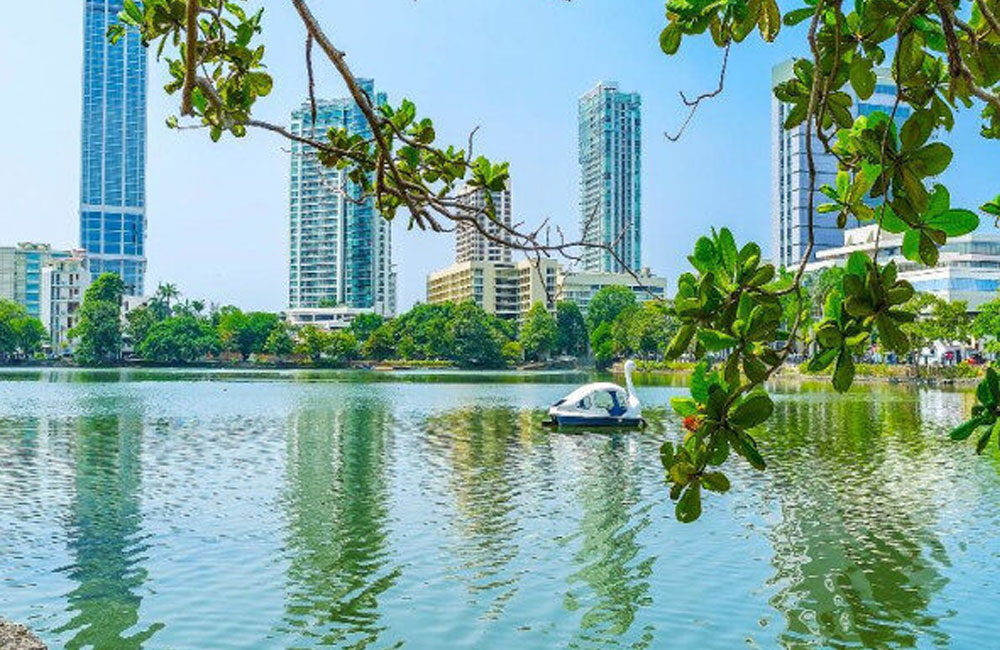
Government Revives Long-Stalled Beira Lake Development Dream
After years of false starts and abandoned deals, the Government has launched a renewed effort to attract investors for a landmark mixed development project on a prime property at No. 40, D.R. Wijewardena Mawatha, Colombo 10, overlooking the Beira Lake.
The three-rood, 13.85-perch plot owned by the Urban Development Authority (UDA) has been opened for investment proposals on a 99-year lease, marking yet another bid to turn this central site into a vibrant commercial and leisure hub.
Approved by the Cabinet, the move is part of a broader plan to transform the Beira Lake region into a thriving district of high-rise developments, waterfront promenades, and cultural zones. UDA officials said proposals will be entertained for hotels, shopping malls, convention centres, and recreation facilities.
Plans include green corridors, a linear park stretching six to twelve metres, and spaces for children’s play areas and water-based leisure activities.
However, the project faces significant practical hurdles. The site is still occupied by several state institutions, including the Excise Department, CWE warehouses, and CW Mackie PLC.
These must be relocated before any construction begins. Additionally, while over 320 unauthorized settlements near the Gangarama Temple have already been removed, another 1,000 families await resettlement as part of the area’s clearing process.
Despite these obstacles, officials note that the site’s strong infrastructure and central location close to the Colombo Port, Fort railway station, schools, and financial centres make it an attractive investment. The UDA is offering flexible payment terms, combining upfront and installment options based on valuations from the Government Chief Valuer.
Still, the project carries the weight of its chequered past. A US$200 million luxury resort proposed by Queensbury Leisure Ltd. was cancelled in 2017 after failing to commence within the stipulated period, while Japan’s Belluna Co. Ltd. and Asia Capital withdrew their Rs. 4 billion investment in 2022 amid liquidity concerns.
Officials remain cautiously optimistic. “The potential to reshape Colombo’s skyline is immense,” one senior UDA source said. “But only consistent policy and investor confidence will determine whether this vision finally becomes reality.”
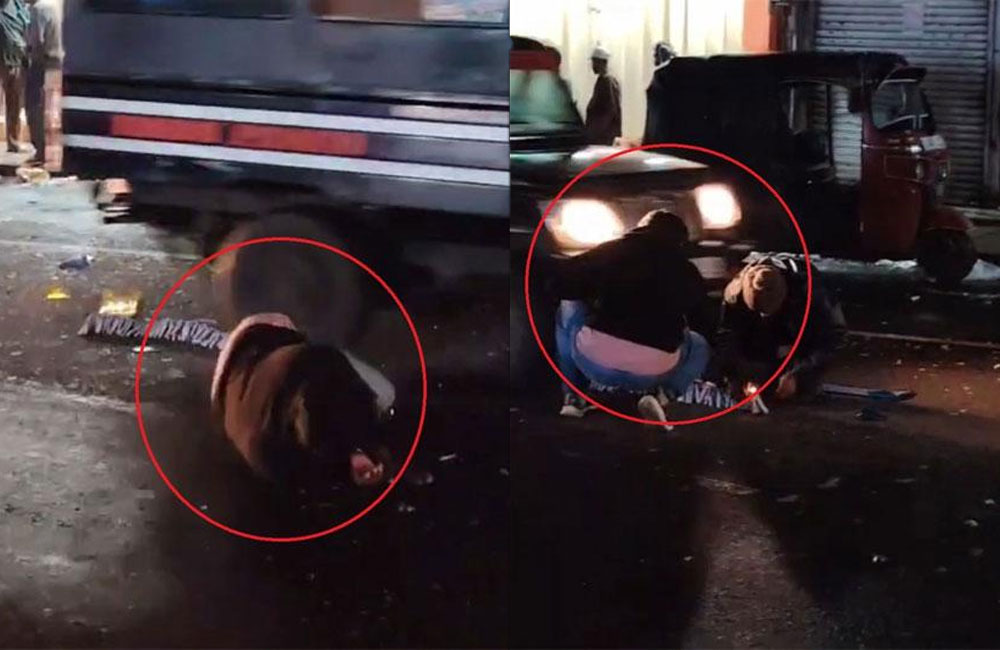
Two youths run over by lorry during Deepavali celebrations in Talawakelle
Two youths were seriously injured after being run over by a speeding lorry while lighting firecrackers in the centre of Talawakelle town early on Sunday (20), police said.
The incident occurred around 12:30 a.m. when the victims were celebrating Deepavali. The lorry, which was reportedly travelling at high speed, struck the two youths and fled the scene.
Police later arrested the suspect driver, who had been hiding at his residence in the Grand Weston Estate, Talawakelle.
The injured youths were initially admitted to the Lidula Hospital and later transferred to the Nuwara Eliya District General Hospital for further treatment due to the severity of their injuries.
Talawakelle Police are conducting further investigations into the incident.
(Source - DailyMirror)
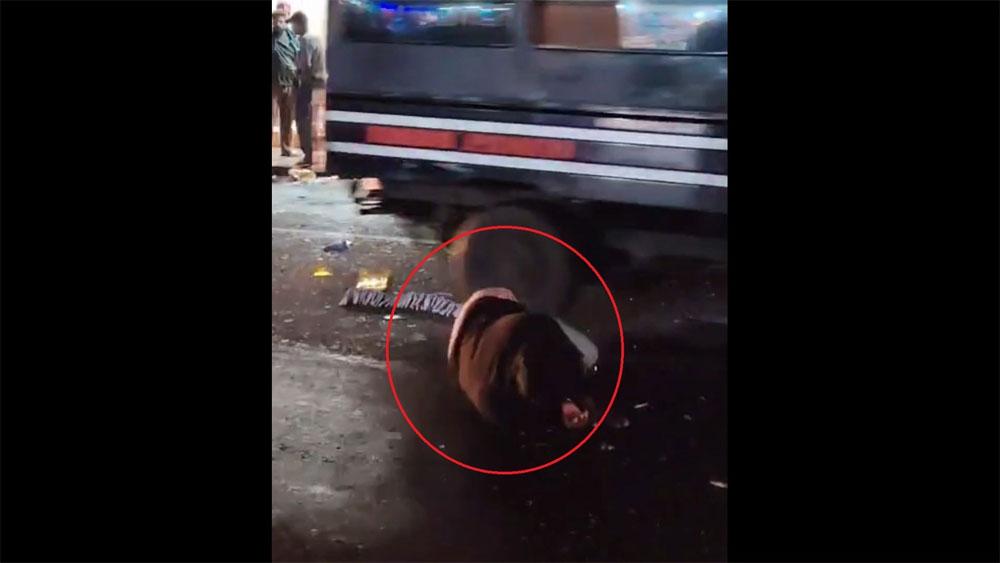
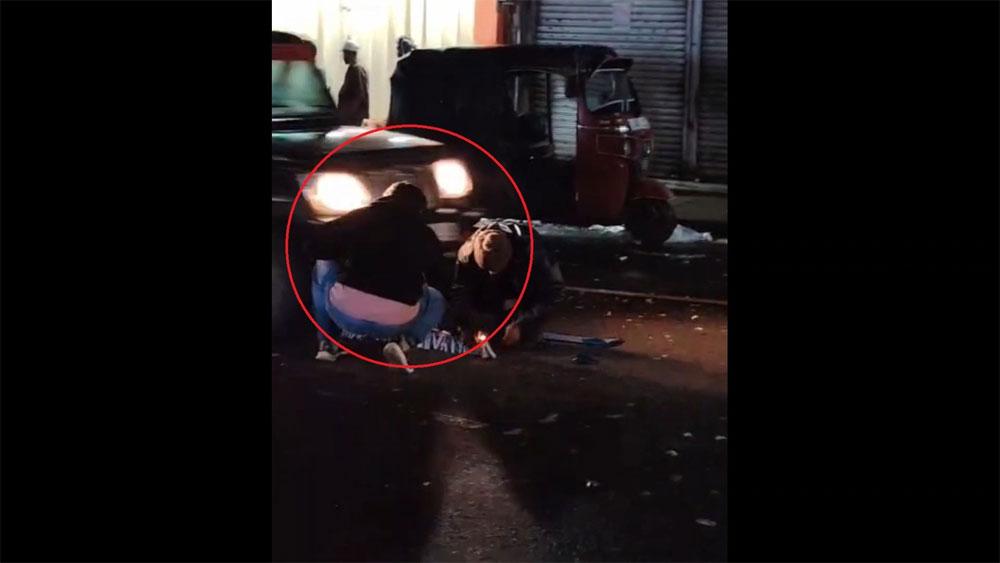

Sri Lanka Expands Tax Breaks to Boost Green Investments
In a significant policy shift to drive renewable energy and sustainable industrial growth, the Government has introduced new regulations granting duty and tax exemptions on the import and local purchase of capital goods used in priority development projects.
The regulation, issued by Finance, Planning and Economic Development Minister Anura Kumara Dissanayake under Section 101(1) of the Customs Ordinance, was gazetted this week and will take effect on 15 October 2025. It updates the 2018 framework to include renewable energy storage among the eligible sectors under the bonded warehouse facility a move expected to accelerate investment in clean energy infrastructure.
Under the revised rules, companies registered for approved projects in five key industries—dairy manufacturing, pharmaceutical production, medical equipment manufacturing, solid waste management, and renewable energy generation or storage can now import or purchase capital goods free from selected duties and taxes.
To qualify, renewable energy projects must involve either the construction of new facilities or expansion of existing ones with at least 1 megawatt (MW) of generation capacity or 1 megawatt-hour (MWh) of storage capacity.
The amendment replaces sections of the 2018 Gazette (No. 2083/33), broadening the incentive scheme beyond manufacturing to include environmental management and clean energy sectors. This marks a strategic shift in Sri Lanka’s economic vision, aligning with its 2026 development roadmap that emphasizes energy security, sustainability, and industrial innovation.
Economists and industry analysts view the regulation as a timely intervention that could attract both local and foreign investors into Sri Lanka’s green economy. With global investors increasingly prioritizing low-carbon ventures, the new policy could enhance the country’s competitiveness in renewable energy and waste management.
Experts also note that the initiative supports the Government’s national target of generating 70% of electricity from renewable sources by 2030, while reducing dependence on imported fossil fuels.
“The inclusion of energy storage is particularly crucial,” an energy sector analyst noted. “It shows policymakers are thinking beyond generation to grid stability and long-term energy resilience.
”The regulation, therefore, represents more than a fiscal adjustment it signals a broader commitment to transforming Sri Lanka’s energy and industrial base through innovation, sustainability, and investment confidence.
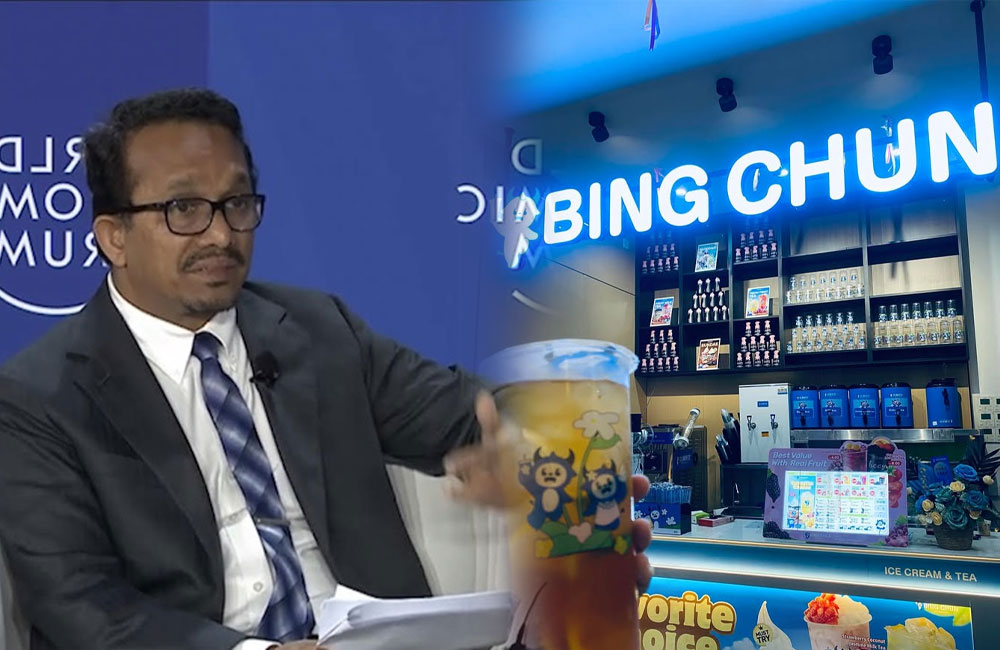
Government’s “Big Kuchchan” and people’s “Bing Chun”
Members of the opposition political parties, both minority and majority, have been making fun out a mispronunciation of two English words by a prominent Cabinet Member of a NPP government. The phrase that has been mocked at is “It’s a Big Kuchchan”, a mispronunciation of “It’s a Big Question”. It was the opening sentence of the Minister who was questioned about US president Donald Trump’s role at a panel discussion titled: ‘The Call Of Support Over Climate Change’ in India few months ago.
Many critics argued that the Minister made a big blunder by attending a forum in which the working language was English and messed it up. Some even went on to criticise that the politicians disgraced the entire country and even humiliated Sri Lanka’s age old standard of free education which was above many Asian countries. There was also an argument that the Minister could have taken a translator and answered the question in Sinhala so that a good translator could have done a far better job.
However, there were a number of those came in support of the Minister even as he was mocked by many. Among the arguments were that English is not Sri Lanka’s mother tongue and it should be OK to make a mistakes specially in pronunciation. Some went on to justify Minister’s mispronunciation with the argument that many Sri Lankans pronounce ‘Question’ simply ‘Kuekshan’ because we do not have ‘Q’ sound in Sinhala and Tamil alphabets.
Making a mountain out of a molehill, the Minister was mocked at by claiming that he pronounced ‘Question’ as ‘Kuchchan’ and over the last few weeks we saw some lawmakers nicknaming the minister with the same phrase.
Setting the mockery or mudslinging apart, government can learn a lesson from the bottom-line of what the critics say, checking whether the right people are at the right places or whether it is doing the right thing at the right time. When one seriously analyses the government’s conduct at the end of its one year, whether it is delivering what it promised or whether it is understanding what governance is “It is a Big Question”. We saw many progressive plans were presented during its run up to the last two elections, but how much has been achieved is a question to consider.
‘A big question’
We can understand the reality without going far from our own kitchens. Though we have recovered from the worst ever financial crisis three years ago, its a challenge for any middle income earning or below families to access the most essential basic human need - food - in Sri Lanka today. This is not luxury foods we are talking of but the basic three meals. For some of these families, the practice of eating out occasionally for a change has become an unreachable dream because if they do so, running the family the rest of the month would be an impossible task. At least three years after the economic crisis, there are families in Sri Lanka where parents go hungry to feed their children. Does the government know about this reality? “It’s a Big Question”.
Whatever said and done, human desire is such that we crave to please our taste buds. This may be why we see in several parts of Colombo and its suburbs people, especially the young, flock in queues to “Bing Chun” which is said to be serving tasty deserts, ice creams, bubble tea and many more. The tagline of the Chinese business started in Xinxiang City of central China’s Henan Province, is delivering delicious flavours at affordable prices. Speaking to the media, chairman of Bing Chun, Cheng Dong, said: “We plan to keep expanding in countries along the Belt and Road, bringing new Chinese tea drinks to more consumers,”. The chain now has more than 3000 stores around the world with 500 in Southeast Asia. Thus we see that, similar to many US based food outlet brands like KFC or McDonald’s, China too, is expanding its culinary market.
For most Sri Lankans right now, Cheaper and tasty food could be some relief especially at a time when they go through severe struggles.
Does the NPP government know about this? “It is a Big Question”!
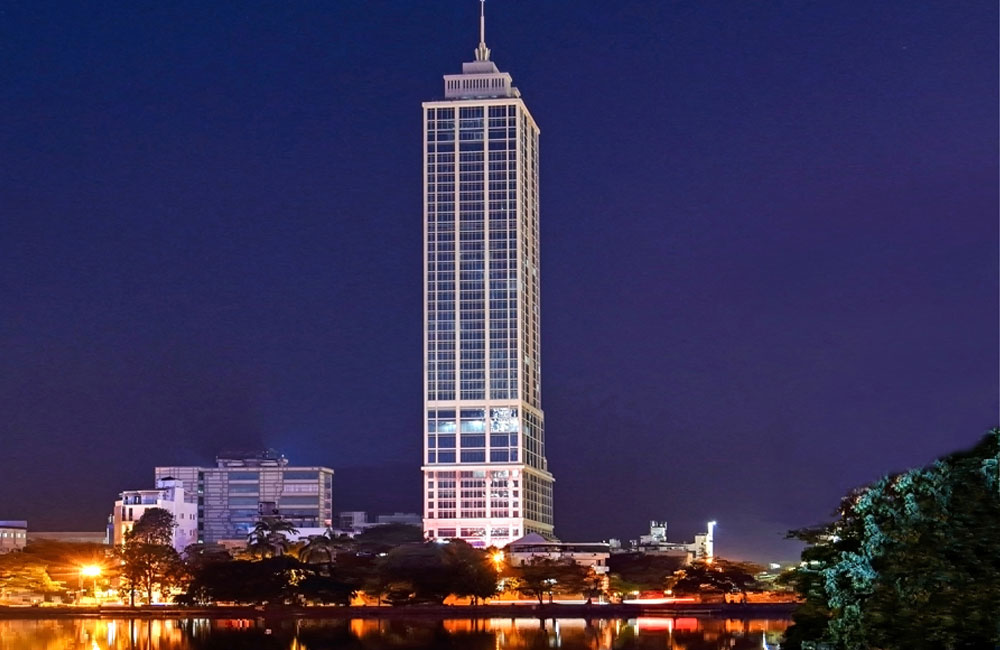
Grand Hyatt Colombo: Decade-Long Dream Awaits Redemption
The Government’s decision to proceed with the long-delayed Grand Hyatt Colombo divestiture, reappointing Deloitte as the transaction adviser, has rekindled cautious optimism while deepening anxiety among investors, state institutions, and apartment buyers who have waited more than a decade for closure.
Initially launched in 2006 under the Ceylinco Group led by businessman Lalith Kotelawala, the project was envisioned as Sri Lanka’s first Grand Hyatt-branded luxury hotels 47-storey landmark featuring 458 hotel rooms and up to 100 serviced apartments. However, the collapse of Ceylinco following the Golden Key credit scandal in 2008 brought construction to a halt.
In 2012, the property was taken over by the state and transferred to Canwill Holdings (Pvt) Ltd, a joint venture between Sri Lanka Insurance Corporation, Litro Gas, and the Employees’ Provident Fund (EPF). Despite multiple relaunches and promises, the project remains incomplete, its skeletal frame standing as a reminder of stalled ambition at the heart of Colombo’s skyline.
With costs now estimated to exceed US$120 million (Rs. 36 billion), the government has decided to sell its 75% stake in Canwill Holdings to a strategic investor capable of completing the venture. According to Finance Ministry sources, Deloitte has been tasked with preparing an Information Memorandum (IM) outlining the company’s assets, liabilities, and pending claims including those from long-waiting apartment purchasers. Once the IM is finalized, Expressions of Interest (EOIs) will be sought from potential investors.
For apartment buyers who paid deposits years ago, uncertainty looms large. There is no official record detailing how many units were sold or how much money was collected, and with no escrow or legal safeguards, many risk being treated as unsecured creditors in the divestiture process. Legal experts insist that their rights must be recognized in any new agreement to avoid further injustice.
Meanwhile, state stakeholders such as Sri Lanka Insurance and Litro Gas face pressure to recover public funds estimated between Rs. 18–21 billion already sunk into the project. The Auditor General’s 2023 report also flagged accounting irregularities, including a Rs. 2 billion share issue discrepancy, highlighting governance lapses.
Economists describe the sale as a necessary but delicate balancing act one that could finally bring closure or deepen mistrust. For hundreds of hopeful homeowners and taxpayers alike, the fate of the Grand Hyatt Colombo now rests on whether this latest revival can deliver on promises left unfulfilled for more than a decade.
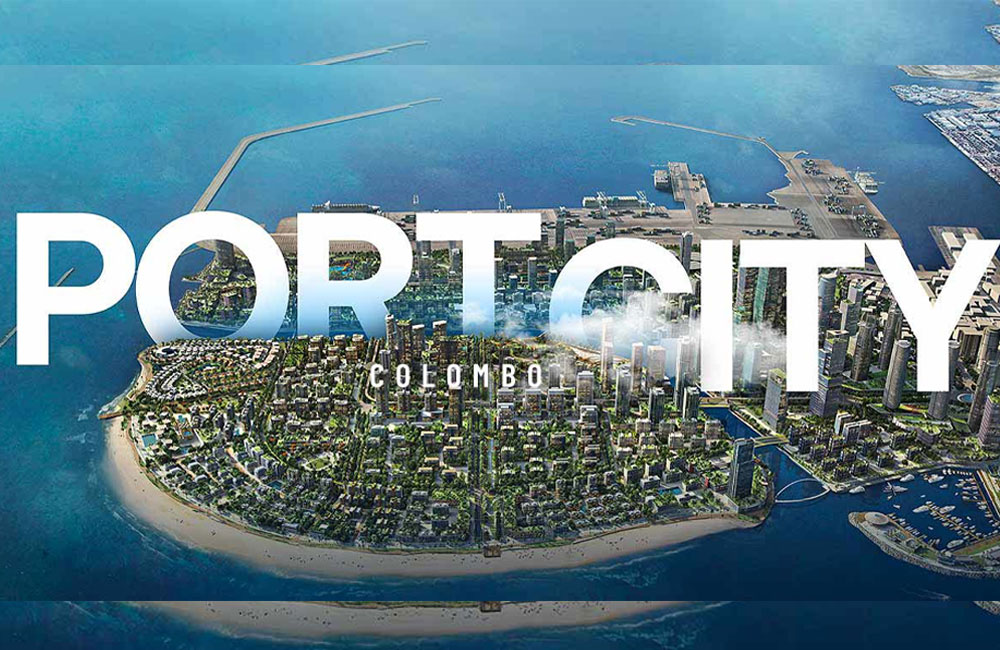
Port City Colombo hits major milestone with completion of Phase 1 infrastructure
Port City Colombo yesterday announced the completion of the first phase of its infrastructure development, a key milestone in Sri Lanka’s most ambitious urban development project to date.
The first phase includes critical linkages connecting the reclaimed land to the Colombo Municipal Council’s electricity and water supply systems as well as the city’s wastewater drainage network.
“This milestone marks an essential step in the progress of Port City Colombo and ushers in the next stage of development and future investments,” said Colombo Port City Economic Commission Chairman Harsha Amarasekera.
The commission serves as both the regulatory authority and single-window investment facilitator for the Colombo Port City Special Economic Zone (SEZ).
Amarasekera asserted that the completion of the first phase comes at a time when Sri Lanka is regaining investor confidence, following the government’s reform drive under the International Monetary Fund (IMF) programme.
“This year has been a year of significant progress for Sri Lanka, as the government, under the IMF programme, has taken measures to strengthen policies that protect investments and has brought in reforms that enhance transparency, accountability and the rule of law, to ensure inclusive and sustainable economic expansion,” he said.
The first phase of the project, spanning infrastructure connectivity, utility integration and essential service readiness, sets the foundation for the next stage of construction and investment mobilisation. The focus now shifts towards attracting anchor investors for commercial, residential and lifestyle developments within the SEZ.
“Port City Colombo is one of the largest investment projects in Sri Lanka, mainly because it created a new physical structure that was not on the map before,” said Finance, Planning and Economic Development Ministry Secretary Harshana Suriyapperuma.
He acknowledged that while the completion of Phase 1 took longer than expected, it marks a defining opportunity for Sri Lanka to demonstrate its potential as a destination for “better foreign investments, business, trade, tourism and lifestyle”.
“We need to continue to work with the utility providers to complete the internal infrastructure of this project and ensure its success,” he added, stressing the importance of continued collaboration between the government and private stakeholders.
Meanwhile, Port City Colombo Project Management Unit Project Director retired Major General Udaya Nanayakkara noted the urban design concept focuses on sustainability and livability. He noted that the project aims to create a “walkable city”, with reduced traffic emissions, a clear road hierarchy and an underground system for utilities, elements designed to enhance environmental quality and efficiency.
The 12-kilometre internal road network within Port City Colombo will seamlessly connect the city’s northern and southern ends, improving mobility and accessibility while positioning the project as a central hub for South Asia.
The 12-kilometre road network within the Port City would also connect Colombo North and Colombo South effortlessly, while being a central hub for the South Asian region.
(Source - Dailymirror)
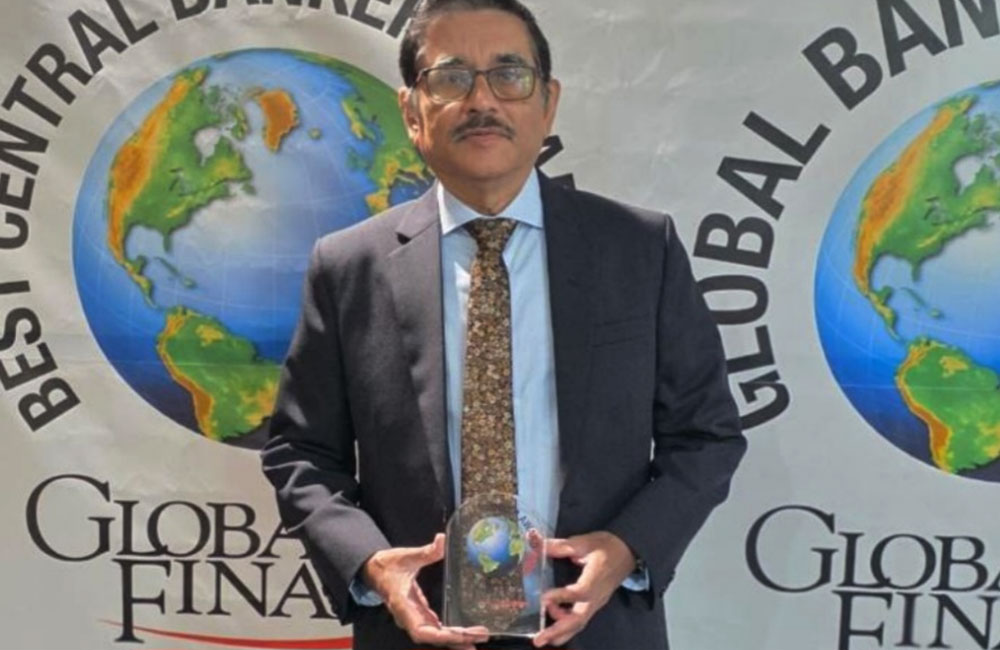
Global Finance ranks Nandalal Weerasinghe ‘A Grade’ Governor
Central Bank Governor Dr. Nandalal Weerasinghe has been recognized with the prestigious “A Grade” award by Global Finance magazine at the 2025 World’s Best Central Bank Governors awards, held alongside the IMF–World Bank Annual Meetings in Washington.
The recognition celebrates Dr. Weerasinghe’s prudent monetary policies, his leadership in stabilizing Sri Lanka’s financial system, and his strategic management amid challenging global conditions. Global Finance annually rates central bank governors based on policy credibility, inflation control, currency stability, and economic growth outcomes.
Under Dr. Weerasinghe’s stewardship, Sri Lanka’s Central Bank has implemented critical reforms to ensure monetary stability, strengthen the banking sector, and rebuild confidence in the domestic economy. The award reflects the global acknowledgment of these achievements and Sri Lanka’s steady progress toward economic recovery.
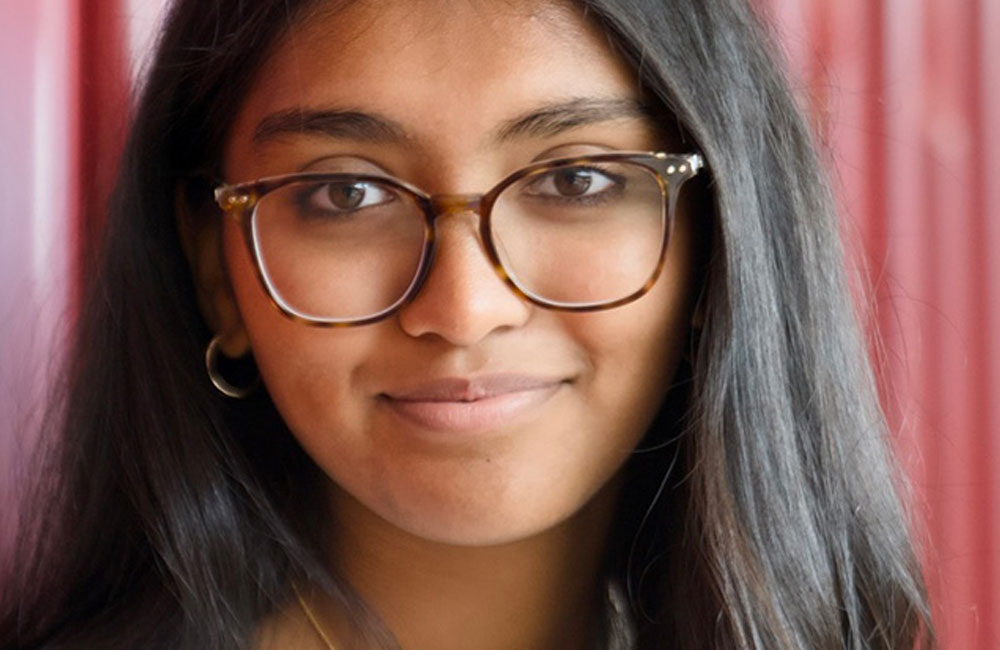
Sri Lankan Teen Wins Foyle Young Poet of the Year Award
Fifteen-year-old Ellanya Sivasubramaniam from Reading, Berkshire has been named among the top winners of the distinguished Foyle Young Poets of the Year Award, the Tamil Guardian reports.
Her poem, The Girls Who Grow Antlers, was chosen as one of the Top 15 winning entries from an extraordinary 28,344 submissions spanning 135 countries — making the competition one of the most fiercely contested literary platforms for writers aged 11 to 17. The award is organised annually by The Poetry Society and supported by The Foyle Foundation.
Ellanya described the moment she received the news as “surreal” and deeply “affirming.”
“I’ll never forget getting the call on my way back from school — I was completely star-struck and could hardly believe it was real,” she recalled.
The winners were celebrated at a ceremony held recently at the British Library in London. As part of the prize, Ellanya will take part in an exclusive week-long residential writing course at The Hurst in Shropshire, where she will collaborate with other young poets and receive professional mentorship. Her poem will also be published in an anthology that will be distributed to schools and libraries across the UK next spring.
Now in its 27th year, the Foyle Young Poets Award continues to be a prestigious launchpad for emerging literary talent — with many past recipients later becoming acclaimed, published writers. This year’s submissions explored themes ranging from identity and language to politics, art, and belonging, with entries arriving from countries as diverse as Botswana, Fiji, Vietnam, Venezuela, and the UK.
By Reshni Shanya
Page 96 of 682